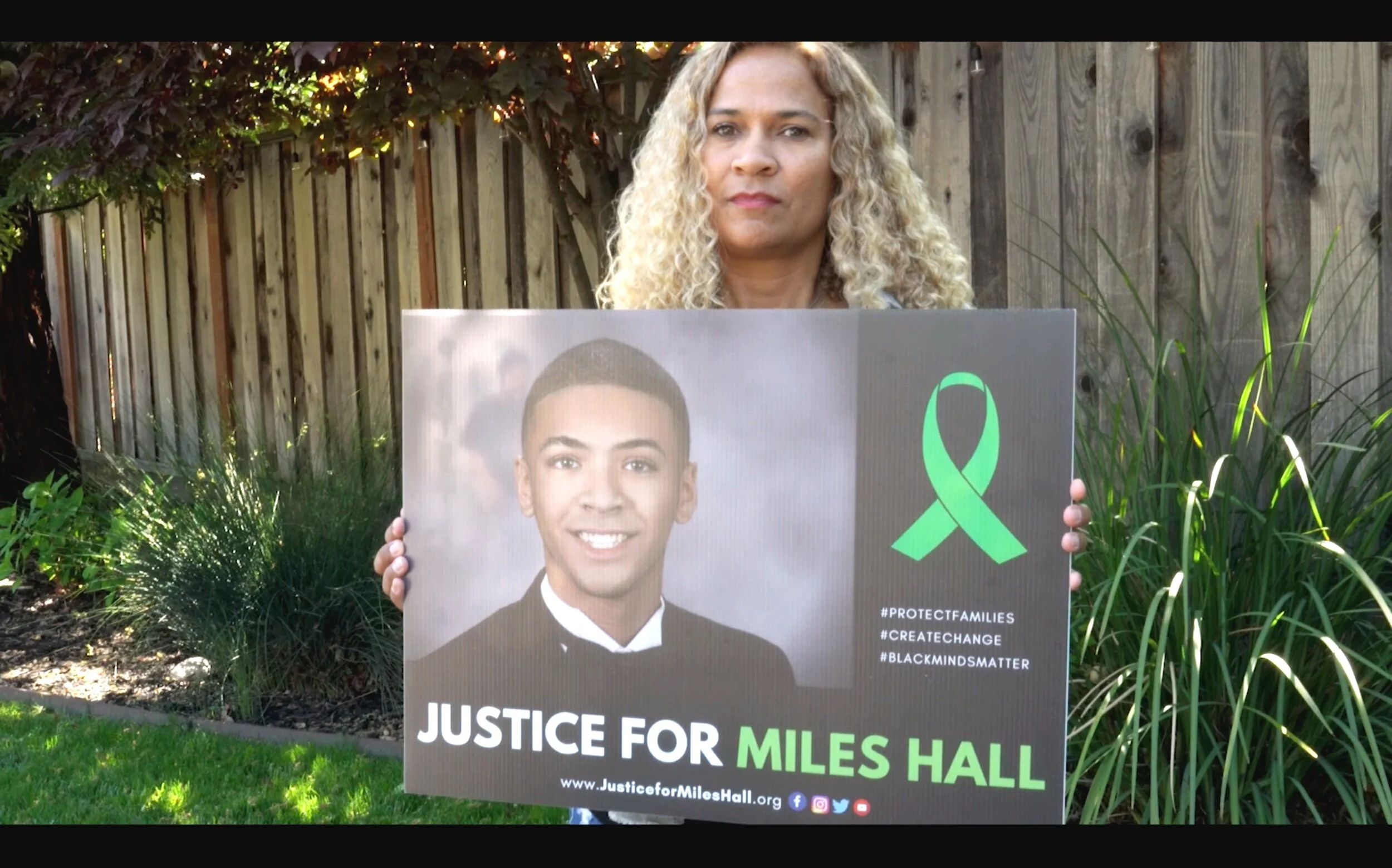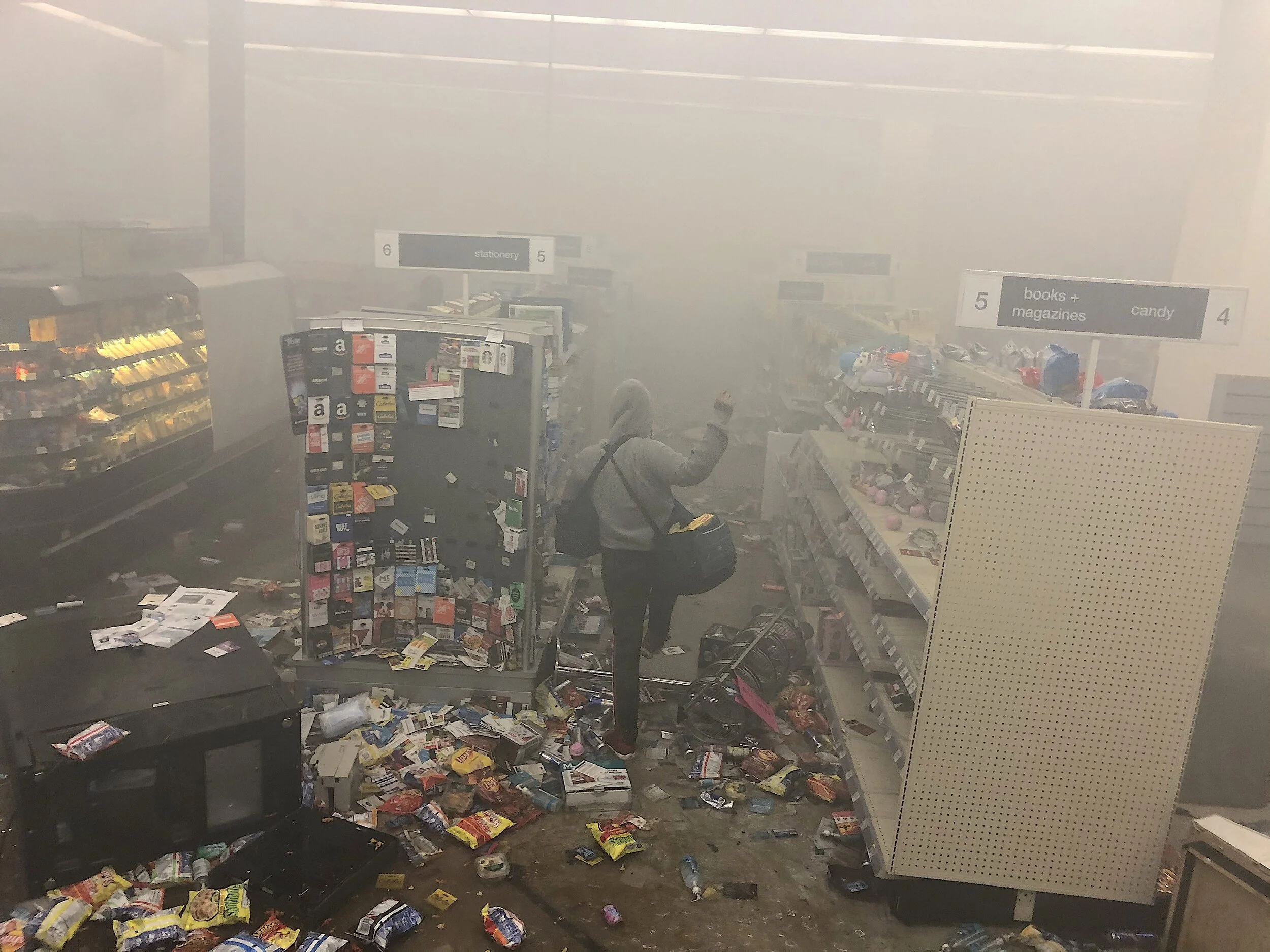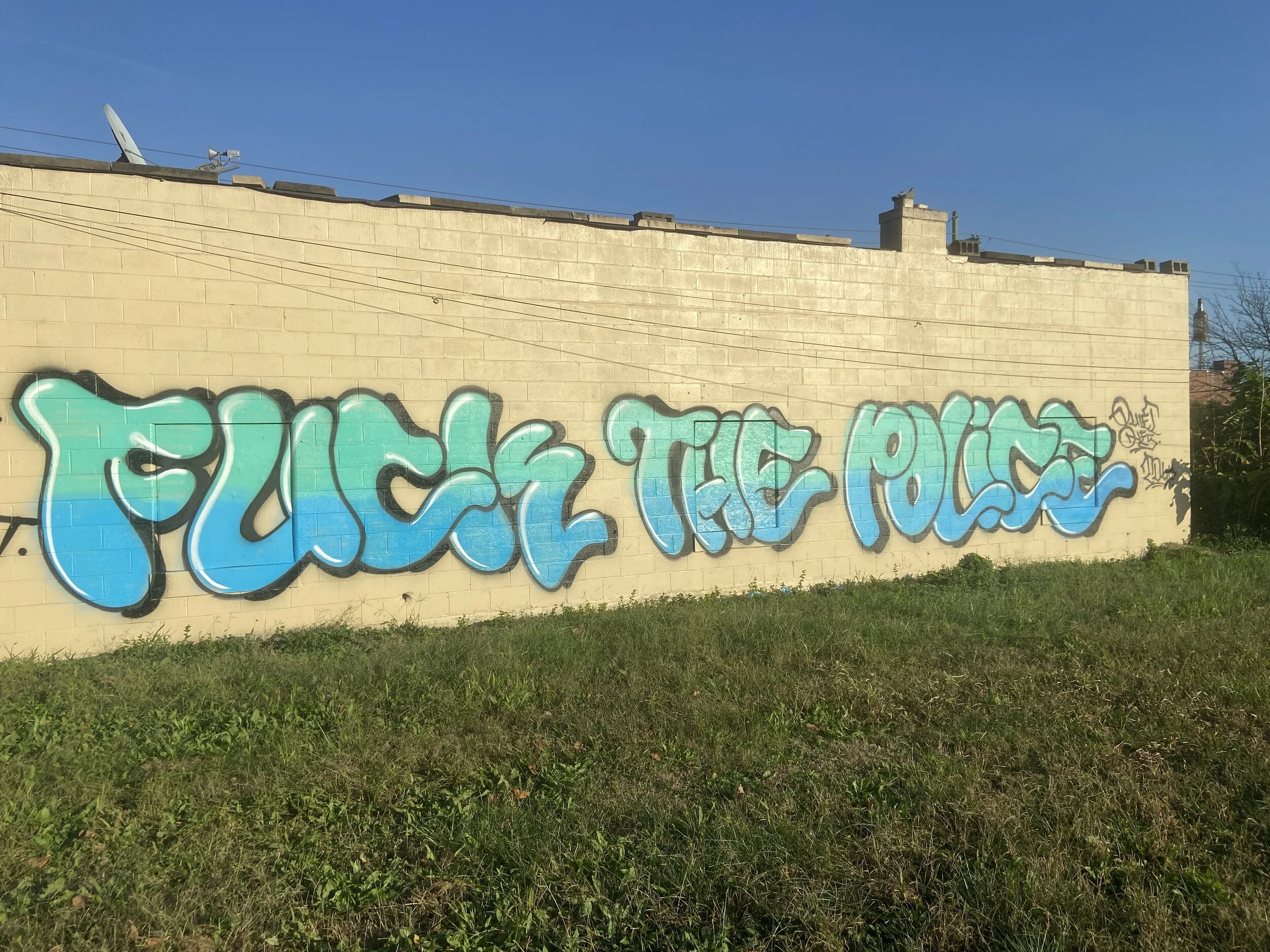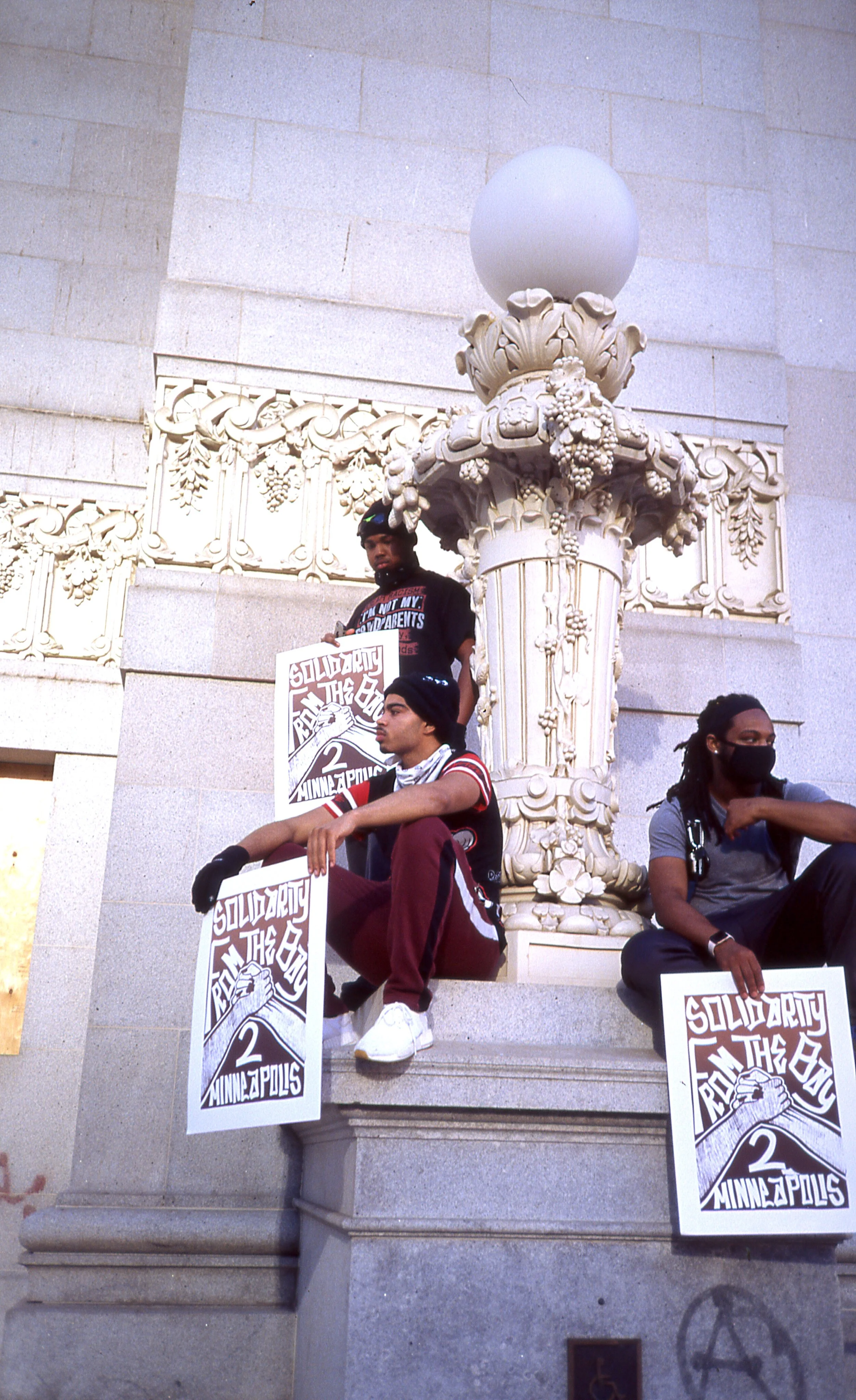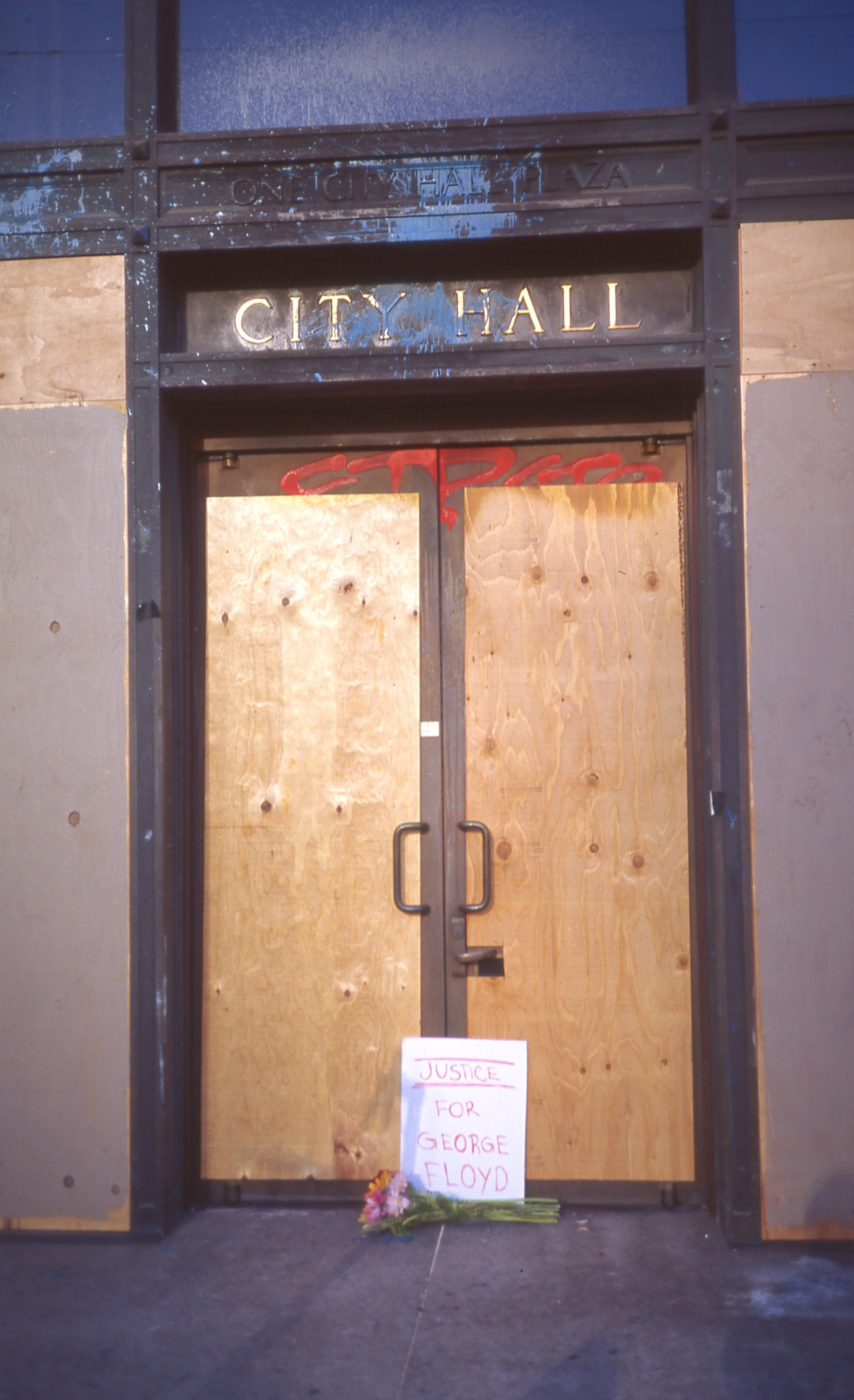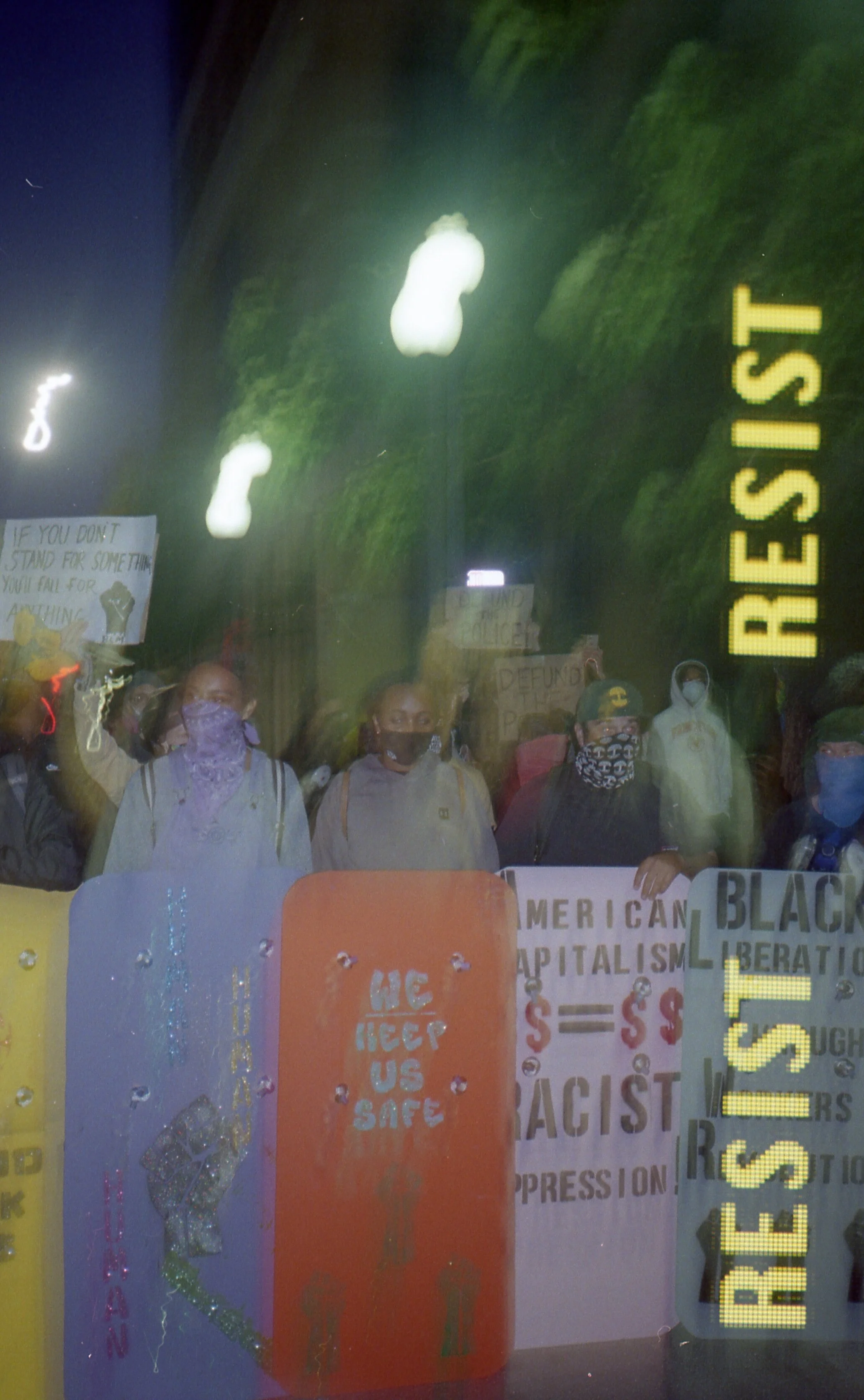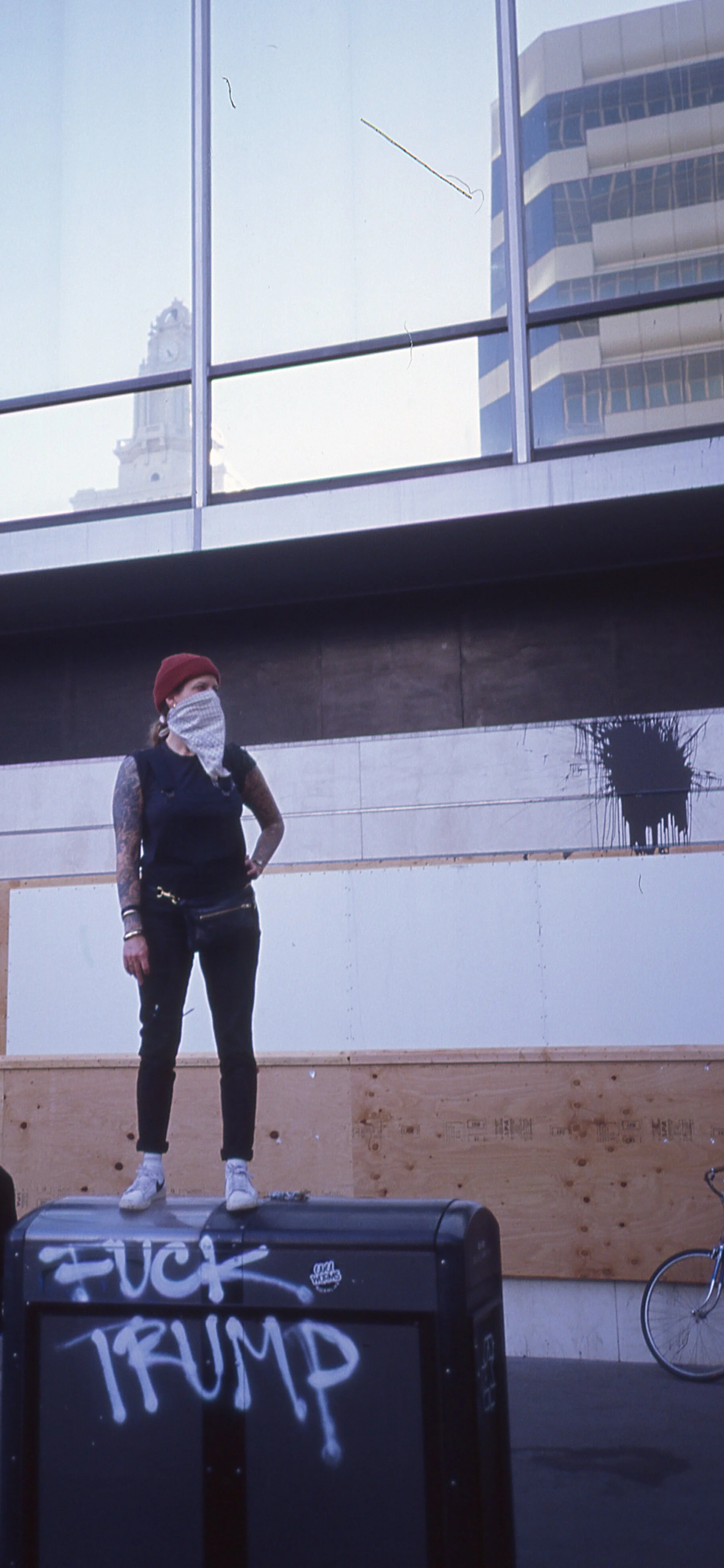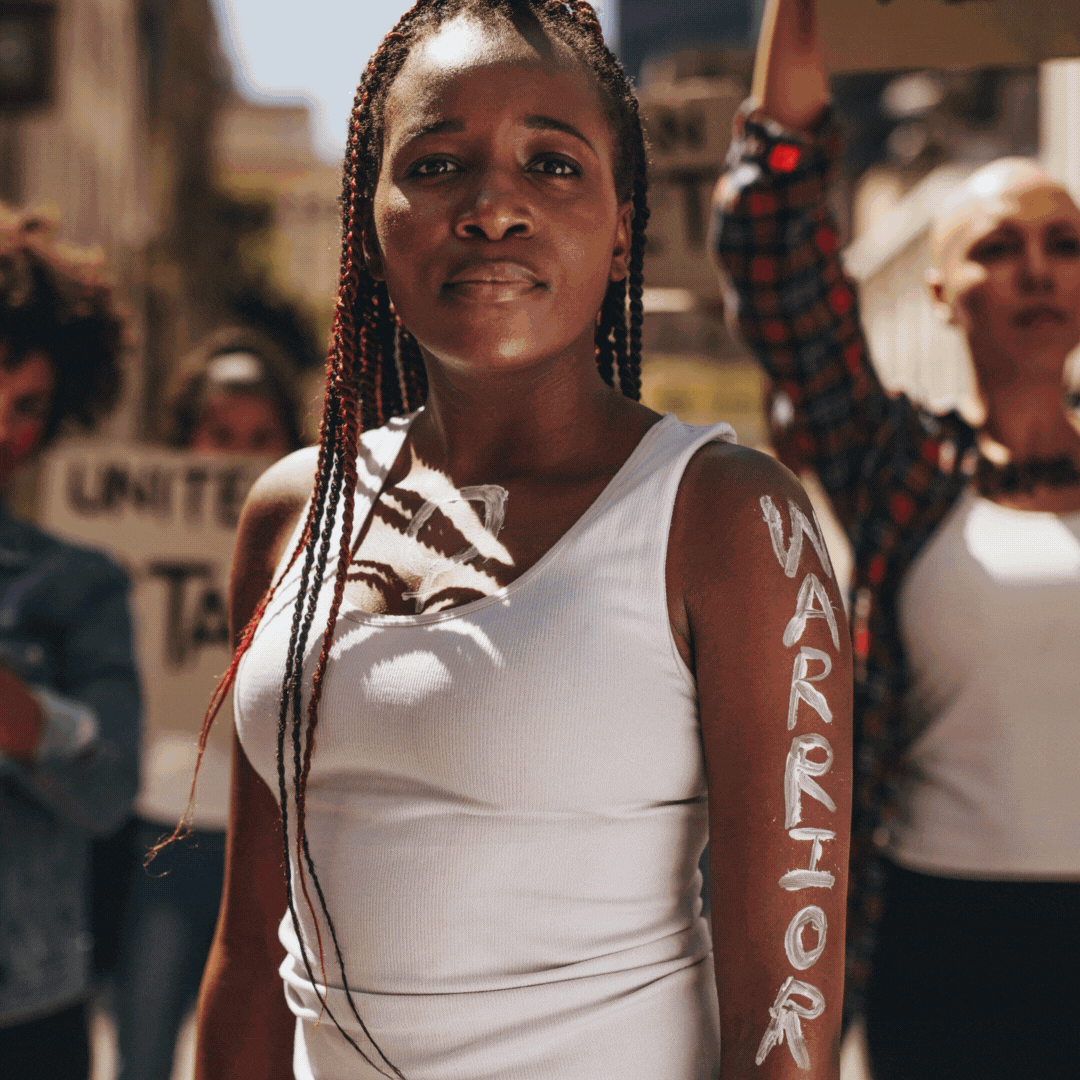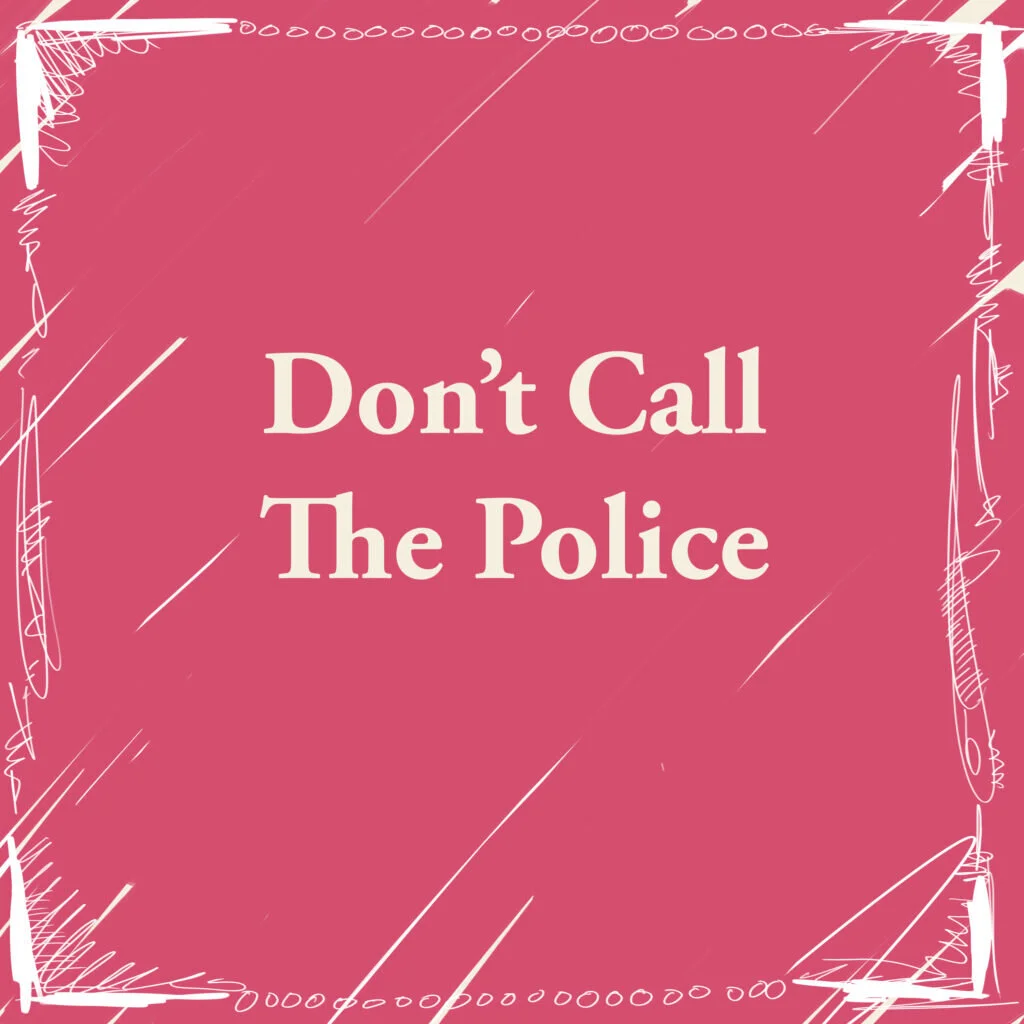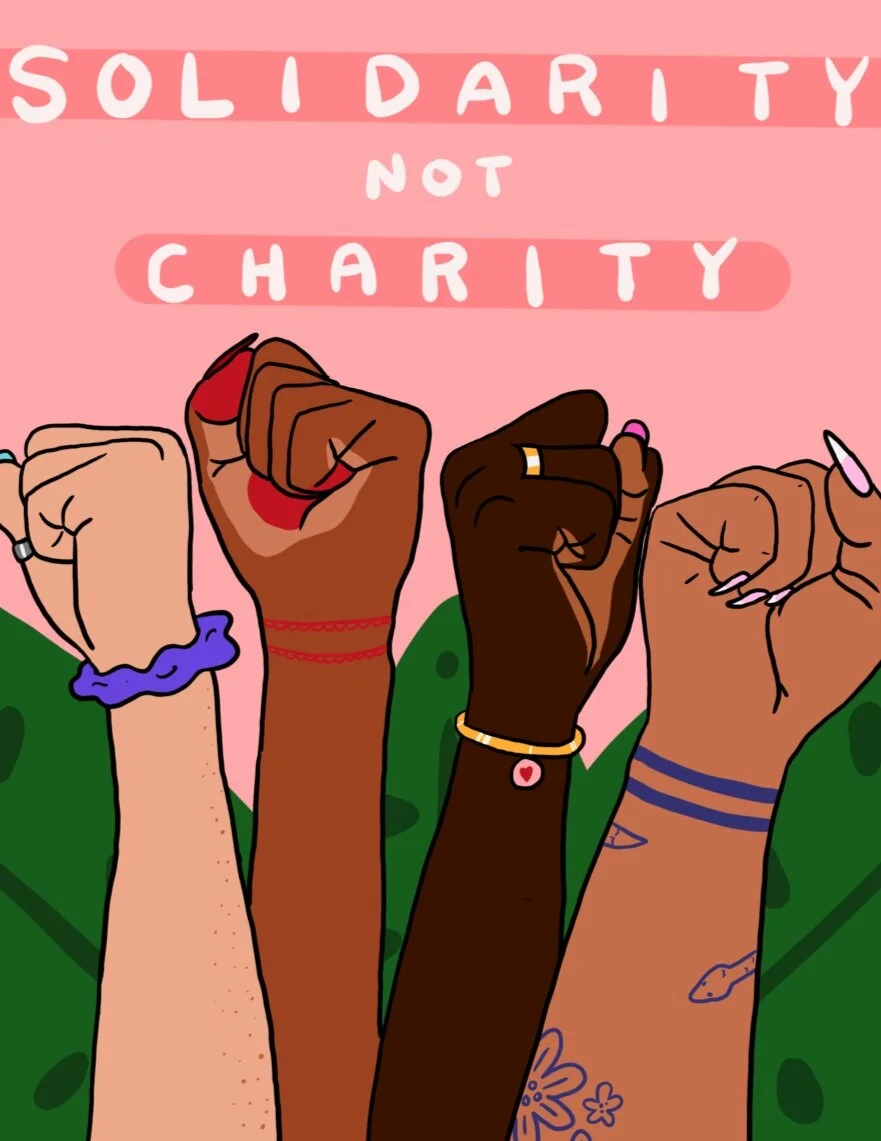One in four people killed by police in the US has a mental illness. The majority of calls to 911 are for mental health emergencies. Police officers are not trained to de-escalate mental health emergencies. The goal of this project is to introduce visitors to alternatives for public safety and community care.
“They didn't treat Miles like a person with a medical condition... They saw him as a Black male who's threatening.” Taun Hall
MILES HALL
Taun Hall lives on a tree-lined cul de sac in upper middle-class Walnut Creek, California. Hall is strikingly beautiful with a soulful smile. But her brown eyes reveal the sadness and anger of a mother who’s lost her child to police violence. Her son, Miles was a self-taught piano player, described as a compassionate young man. Miles suffered from a schizoaffective disorder. He had manic episodes during which he thought he was God and walked the streets aimlessly acting out his delusions. When Miles had a mental health crisis, Taun called neighbors and the Walnut Creek police for help. On June 2, 2019 Miles was in the midst of a mental health crisis. He broke the sliding glass door of his parents home with a garden tool and was walking erratically through the neighborhood when family and neighbors called 911. Less than 30 seconds after police arrived on scene they fired beanbag rounds that didn’t immobilize Miles. Two Walnut Creek police officers fired their handguns striking and killing Miles.
The Hall Family Foundation was created to educate advocate for systemic changes in policing in Walnut Creek though policy and legislation.
Summer 2020
Last year in the midst of the global COVID-19 pandemic two high profile police killings set off a firestorm of protests across the country and urgent calls for defunding and changing use of force policies. On March 13, 2020 in Louisville, Kentucky, Breonna Taylor and her boyfriend, Kenneth Walker were asleep in bed when officers searching for drugs served a no-knock warrant that allows law enforcement to enter a property without immediate prior notification of the residents, such as by knocking or ringing a doorbell. Thinking someone was breaking into the house Taylor’s boyfriend fired a warning shot hitting an officer in the leg. Officers opened fire killing Taylor as she slept. Several months later, on May 25, 2020 white Minneapolis police officer Derek Chauvin knelt on the neck of George Floyd for 9 minutes and 29 seconds. Floyd had been detained under suspicion of using a counterfeit $20 bill. Before losing consciousness and dying Floyd and bystanders begged officer Chauvin to spare his life.
photos by april september
Tensions across the country were high as people of color fatigued by the poor government response to COVID, Trump’s racist antics and the rise of white supremacists sparked protests that erupted in Minneapolis and spread to every major city and small towns in the U.S. Around the world people witnessed police forces across the country use military-style force against Americans protesting non-violently. Journalists were arrested, elders assaulted, and teenagers pepper-sprayed and hit with rubber bullets. These images renewed cries that the police were not protecting and serving communities but profiling and terrorizing citizens. After years of social and racial movements like fighting for justice the first ever comprehensive police reform bill was introduced.
Ecktachrome photographs by april september
MENTAL HEALTH FIRST
What started as a rallying call by Black Lives Matter to end police brutality has transformed into a movement to defund the police. Residents around the country are demanding resources be diverted from the police back into their communities for housing, education and workforce development.
The city of Oakland spends 50% of its general fund budget on its police department. Almost half the calls that Oakland officers respond to are mental health emergencies. The Reimagining Public Safety Taskforce was created to “rapidly reimagine and reconstruct the public safety system in Oakland by developing a recommendation for Council consideration to increase community safety through alternative responses to calls for assistance, and investments in programs that address the root causes of violence and crime (such as health services, housing, jobs, etc), with a goal of a 50% reduction in the OPD General Purpose Fund (GFP) budget allocation.” The Reimagining Public Safety Committee made more than 150 recommendations with alternatives to armed policing and solutions to help alleviate the social inequities, especially for people of color, which result from over-policing. Recommendations include investing in early literacy programs, basic income supplement and reallocating officers to solve violent and deadly crimes instead of misdemeanors, civil matters and mental health emergencies.
The Anti-Police Terror Project (APTP) is an Oakland-based organization that aims to eradicate police terror in communities of color. Founders of APTP Asantewaa Boykin and Cat Brooks designed and implemented the new Mental Health First Team. The goal of MH First is to respond to psychiatric emergencies, and domestic violence situations that require victim extraction, and provide substance use support. Under the MPH model, three people are sent to the emergencies: a trained mental health expert to assist the person in crisis, an EMT or RN to provide medical care and a security liaison to deal with the police in case the situation escalates. Brooks wants to see money from the police budget redirected to programs where community members with strong ties intervene in altercations. “The reality is that the cops have the money now, and people are still dying. I want violence interrupters, I want money to go to Black and Brown people who live in communities where...violence takes place, that have relationships with the people that can get to the gun before the bullet flies, not after,” said Brooks.
MH First Oakland is available in the form of a free hotline – (510) 999-9MH1 – on Friday & Saturday nights from 8pm to 8am, when there are currently no other mental health support options available.
GEORGE FLOYD ACT
On February 24, 2021 the new 117th Congress introduced bill H. R. 1280, the George Floyd Justice in Policing Act of 2021. The Justice in Policing Act would: 1) establish a national standard for the operation of police departments; 2) mandate data collection on police encounters; 3) reprogram existing funds to invest in transformative community-based policing programs; and 4) streamline federal law to prosecute excessive force and establish independent prosecutors for police investigations.” The bill passed the House by a 220-212 vote but will face an uphill battle in the Senate. This is the first time in US history that a federal law would prevent officers from engaging in the type of practices and procedures that contribute to the senseless violence against black and brown people.
DEFUND POLICE, INVEST IN COMMUNITIES
MILES HALL ACT
On April 20th as the jury in the murder trial of Minneapolis Police Officer Derek Chauvin was announcing their verdict, Taun was testifying at the California State Assembly in the Health Committee Session on bill AB 988. The Miles Hall Act creates a new three-digit phone line, 988, for suicide prevention and immediate, localized emergency response for individuals in mental health crisis by trained mental health professionals. Brooks says that programs like Mental Health First and AB 988 are crucial to preventing the deaths of people suffering with mental illness.
AB988 is still making its way through the California legislature and will hopefully be approved and receive funding soon.
ABOLITION
Below is guide to understanding the defund police and abolition movements.
DON’T CALL THE POLICE
Here is a list of RESOURCES and programs across the U.S. that are alternatives to police and government interventions.
“ I can't even tell you at this point how many mothers, fathers, wives and siblings that I've held or have been on the phone screaming like, “I wish I'd had another number to call if I had just had another number to call. But this was my only option.” So not only have those families lost someone that they love deeply, then spend the rest of their lives walking around feeling guilt that it's their fault. It's not of course, right. But it's a double dagger. “ Cat Brooks, Anti-Police Terror Project
MUTUAL-AID
The pandemic isn’t over! Click on the poster for more information on mutual-aid groups in the Bay Area.


